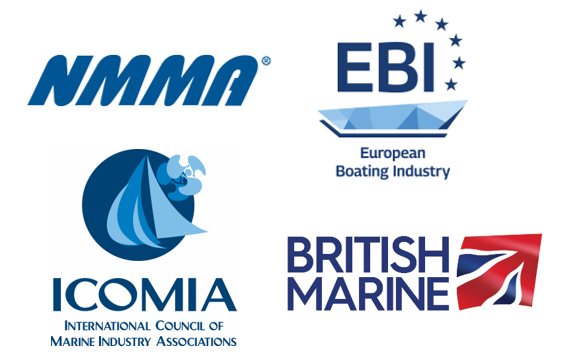Joint statement: Global Boating Industry Urges Fair, Predictable Trade Policies to Protect Jobs and Sustain Economic Growth
Today, leading voices from the recreational boating industry across the globe issued a joint statement calling on their respective governments to adopt trade policies that promote stability, reduce tariffs, and protect the integrity of cross-border supply chains. Representing thousands of small businesses and millions of skilled jobs, the statement underscores the essential role of the marine manufacturing sector in fueling economic growth, preserving local craftsmanship, and expanding outdoor recreation access worldwide.
Read the full statement below:
Global Leisure Marine Industry and Harmonized Cooperation Statement
Recreational boat building is a unique keystone industry that has served as a pillar of our economies and cultures for hundreds of years. But the craft nature of boatbuilding and boat maintenance relies upon carefully cultivated supply chains to succeed, with an expectation that inputs can flow freely, consistently, and efficiently across borders. Unpredictable tariff regimes create significant risks that threaten both economic growth and highly skilled jobs in each of our regions.
As representatives of global leisure marine industries, we therefore call on our respective governments to support a business operating landscape that provides fair and predictable trade. Boating is a significant driver of economic activity, local, nationally, and globally.
- Boating and fishing are the largest contributors to America’s $1.2 trillion outdoor recreation economy with a strong made in America role, and $230 billion in annual economic activity.
- The boating and nautical tourism industry supports the EU’s €890 billion blue economy and the boating industry is one of the largest European export sectors.
- Small and Medium Enterprises are strongly represented in the UK, Australia, and in other nations with emerging opportunities across the Indo-Pacific region.
Further, every dollar of direct spending in this sector generates at least another 60 cents in economic activity and every two sector jobs create at least one additional job in related industries and services.
The design, build and distribution of boats, including raw materials and components, supports a highly skilled workforce. Small and medium-sized businesses are common and are meaningful sources of employment as well as serving as a strong foundation for their local communities. For instance, 96% of sector participants in the EU are small locally owned business that directly employ more than 280,000 employees2 across 32,000 businesses. In the U.S., 93% of the marine industry are small businesses, supporting over 800,000 jobs.
At their core, these internationally connected yet locally focused businesses do much more than just support economic growth and skilled employment. They also proudly facilitate sport, tourism, leisure, well-being, heritage, and tradition. But they require business certainty at global, national, and local levels to succeed. By pursuing fair and predictable trade that lowers tariffs and breaks down trade barriers – along with more harmonized operational landscapes with regard to safety, access, standards, and other protocols – our governments can mutually support our distinct interests and the many markets our businesses serve.





